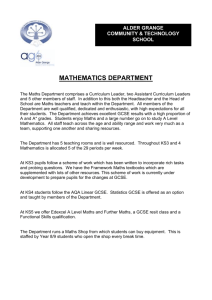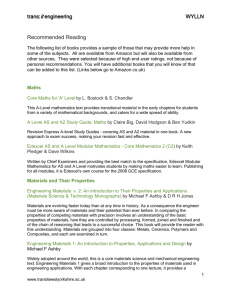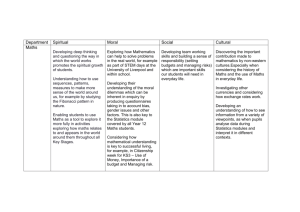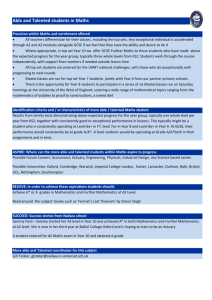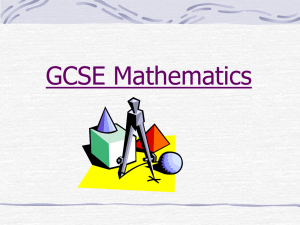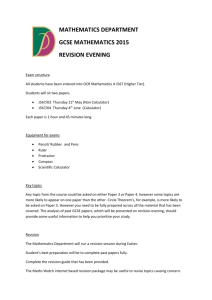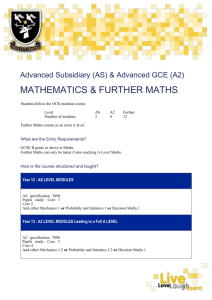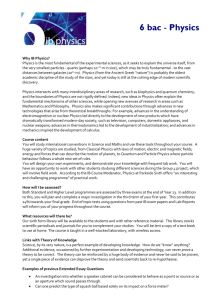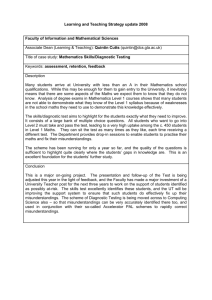Maths Curriculum Information
advertisement
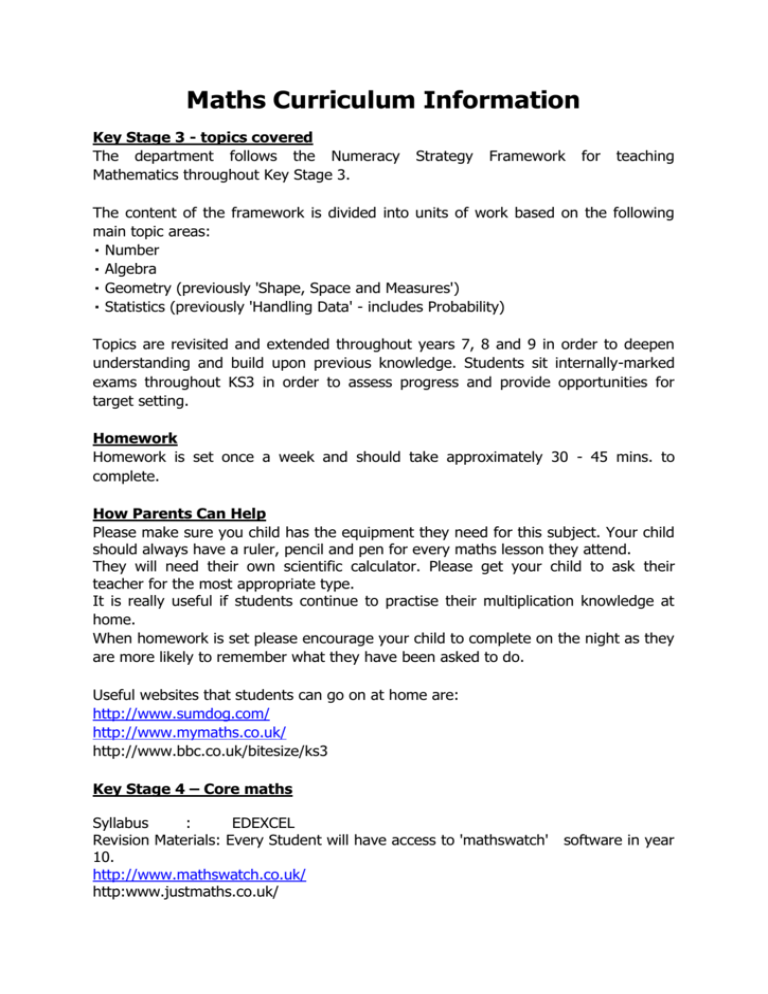
Maths Curriculum Information Key Stage 3 - topics covered The department follows the Numeracy Mathematics throughout Key Stage 3. Strategy Framework for teaching The content of the framework is divided into units of work based on the following main topic areas: Number Algebra Geometry (previously 'Shape, Space and Measures') Statistics (previously 'Handling Data' - includes Probability) Topics are revisited and extended throughout years 7, 8 and 9 in order to deepen understanding and build upon previous knowledge. Students sit internally-marked exams throughout KS3 in order to assess progress and provide opportunities for target setting. Homework Homework is set once a week and should take approximately 30 - 45 mins. to complete. How Parents Can Help Please make sure you child has the equipment they need for this subject. Your child should always have a ruler, pencil and pen for every maths lesson they attend. They will need their own scientific calculator. Please get your child to ask their teacher for the most appropriate type. It is really useful if students continue to practise their multiplication knowledge at home. When homework is set please encourage your child to complete on the night as they are more likely to remember what they have been asked to do. Useful websites that students can go on at home are: http://www.sumdog.com/ http://www.mymaths.co.uk/ http://www.bbc.co.uk/bitesize/ks3 Key Stage 4 – Core maths Syllabus : EDEXCEL Revision Materials: Every Student will have access to 'mathswatch' software in year 10. http://www.mathswatch.co.uk/ http:www.justmaths.co.uk/ Topics Covered Students study Data Handling, Number, Algebra, Geometry and Measure, and will develop skills in the following areas: Applying Mathematics understanding mathematical methods and concepts and how these are applied in mathematical situations. Problem Solving developing and refining problem solving strategies so unfamiliar challenges can be tackled. Thinking & Reasoning Skills reasoning mathematically, making deductions and inferences and drawing conclusions. The Functional Elements of Mathematics interpreting, processing and communicating the mathematics of everyday situations. GCSE Mathematics is a linear course with 2 examinations at the end of the course: Paper 1 (non calculator) 50% and Paper 2 (calculator) 50% Homework Homework will be set weekly and could last up to 1 hour. How Parents Can Help Please make sure you child has the equipment they need for this subject. They will need their own scientific calculator. Please get your child to ask their teacher for the most appropriate type. OPTIONS - Additional Maths Syllabus : EDEXCEL (Statistics), AQA (Further Maths) Revision Materials http://www.mymaths.co.uk/ Topics Covered In Year 10 we will cover the GCSE Statistics syllabus. This covers methods of: Collecting data Processing data Displaying data Interpreting data In Year 11 we will cover the Level 2 Further Maths course. Homework Homework is set once a week and should take approximately an hour to complete. It is best completed on the night that it is set so that there is time for extra guidance from the teacher if necessary before it is due to be handed in. How Parents Can Help Please encourage pupils to attend lessons properly equipped (pen, pencil, rubber, ruler and calculator).
